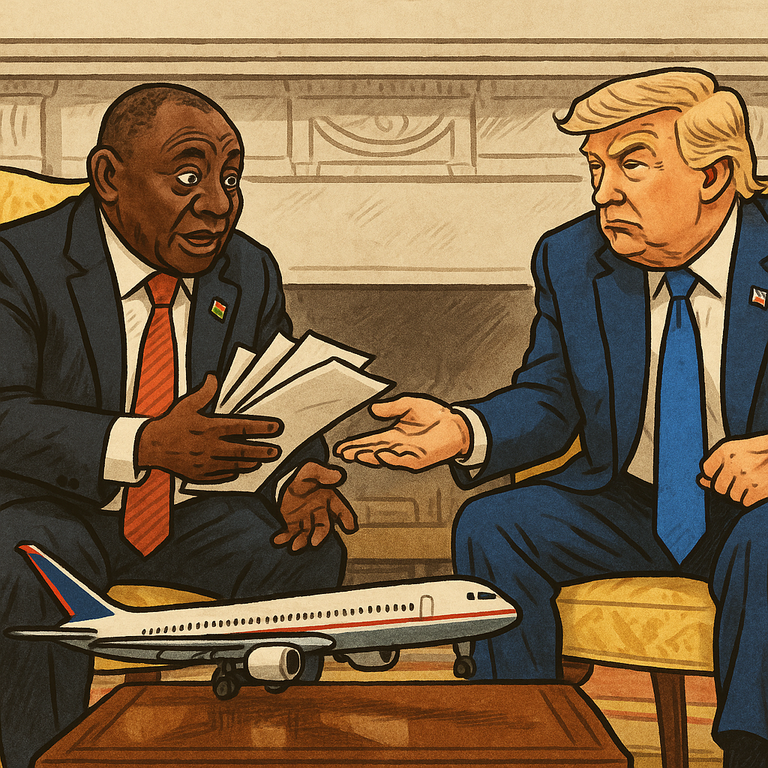In a recent diplomatic engagement in Washington, D.C., South African President Cyril Ramaphosa found himself on the receiving end of unexpected criticism from former U.S. President Donald Trump. During a private meeting that was part of broader efforts to reinforce bilateral ties, Trump confronted Ramaphosa with a series of contentious allegations regarding the treatment of white citizens in South Africa—claims that have long been dismissed by experts as misleading and rooted in far-right conspiracies.

Trump, according to sources familiar with the discussion, referenced unsubstantiated accusations of government-sanctioned land seizures and violence against white farmers, echoing rhetoric that gained traction during his first term. These narratives, often amplified by fringe media outlets, claim that South Africa's post-apartheid land reform policies are tantamount to racial retribution.
Ramaphosa, caught off guard by the tone of the conversation, reportedly responded with restraint and diplomatic poise. He reaffirmed his government’s dedication to constitutional processes, emphasizing that land reform in South Africa is being pursued through legal and transparent channels. The President underscored that the initiative is aimed at correcting generations of systemic inequality rooted in colonial dispossession and apartheid-era policies, rather than targeting any racial group.
Observers close to the South African delegation noted that Ramaphosa did not escalate the tension but instead pivoted the conversation toward future collaboration. Recognizing the broader geopolitical importance of the U.S.–South Africa relationship, he proposed exploring a new bilateral trade framework that could benefit both nations. This offer was seen by many analysts as an effort to refocus the meeting on shared economic interests and divert attention from Trump’s inflammatory remarks.
The backdrop to this high-stakes meeting is a period of uncertainty in global diplomacy, with Trump continuing to play a significant role in American politics despite no longer holding office. His ongoing influence and potential bid for re-election in 2024 have kept his international interactions relevant, if controversial.
South Africa, for its part, remains a pivotal player on the African continent and a strategic partner for the United States in areas ranging from trade and investment to public health and regional security. Ramaphosa’s approach in Washington reflects an attempt to safeguard these ties at a time when misinformation and political polarization increasingly threaten international cooperation.
In South Africa, the President’s handling of the encounter has drawn mixed reactions. Supporters praise his composure and strategic thinking, while critics argue that a more forceful rebuttal of Trump’s claims was warranted. However, many agree that proposing a new trade agreement was a tactful way to shift the narrative and seek tangible outcomes from an otherwise fraught conversation.
As discussions continue behind the scenes, the prospect of a strengthened U.S.–South Africa trade relationship hangs in the balance. While Trump's allegations may have temporarily strained the atmosphere, Ramaphosa's overture suggests a long-term view anchored in diplomacy, economic partnership, and mutual respect.
Whether this encounter marks a setback or a stepping stone in the countries’ relations may ultimately depend on how both sides navigate the political complexities ahead—and whether cooler heads can prevail over the din of populist rhetoric.
Should heads of state directly confront false narratives in diplomatic settings, or is strategic deflection a better approach?